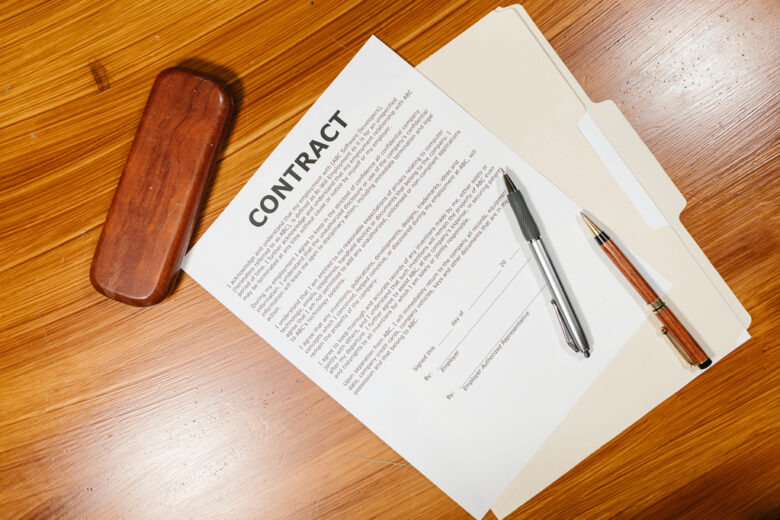Settlement agreements are often used to resolve legal disputes between parties outside of the court system. However, the drafting of these arrangements can be complex and require a thorough understanding of the law. It is crucial to seek legal counsel when drafting settlement agreements to ensure that your interests are protected and the agreement is enforceable. Here are 10 things to know about the importance of legal counsel in drafting settlement accords.
Contents
1. Legal expertise
Settlement deals can involve a wide range of legal issues, such as contract law, employment law, and intellectual property law. Legal counsel has the expertise to navigate these complex legal issues and ensure that the agreement is legally sound.

Source: contractscounsel.com
2. Protecting your interests
Protecting your interests is an essential consideration in any legal matter, and it becomes even more critical in situations involving a legal dispute. When facing a legal dispute, it is crucial to seek legal counsel to help protect your interests effectively. Here are some subheadings to consider when protecting your interests in a lawful matter.
• Understanding your rights
When negotiating a settlement agreement, it’s crucial to have a clear understanding of your permitted rights. A settlement agreement solicitor can help you understand the law, explain your rights and obligations, and advise you on the best course of action to take. With their expertise, you can ensure that your interests are protected throughout the negotiation process, and that the final contract is comprehensive, enforceable, and tailored to your specific situation.
• Identifying potential risks
Legal counsel can help you identify potential risks associated with the permitted dispute. They can assess the risks and advise you on how to mitigate those risks, whether it be through settlement negotiations or taking the matter to court.
• Drafting a solid agreement
When settling a legal dispute, it is crucial to draft a settlement agreement that protects your interests. Lawful counsel can help you draft an deal that is comprehensive, enforceable, and tailored to your specific situation.
• Negotiating favorable terms
When negotiating a settlement, lawful counsel can help you negotiate favorable terms that protect your interests. They can advise you on what terms are negotiable and what terms are non-negotiable, ensuring that you get the best possible outcome.
• Enforcing the agreement
Once a settlement arrangement is in place, permitted counsel can help ensure that the agreement is enforced. They can advise you on how to monitor compliance with the understanding, how to handle breaches, and how to enforce the deal in court if necessary.

Source: debt.org
3. Avoiding loopholes
Settlement agreements can be subject to interpretation, and there may be loopholes that can be exploited by the other party. Lawful counsel can help you identify and close these loopholes to ensure that the agreement is enforceable.
4. Enforceability
Settlement contracts are legally binding contracts, and they must be enforceable. Permitted counsel can ensure that the pact complies with all lawful requirements and is enforceable in court.
5. Avoiding future disputes
Avoiding future disputes is an important consideration when dealing with permitted matters. Legal disputes can be costly, time-consuming, and damaging to relationships between parties. Lawful counsel can provide guidance on how to draft contracts and agreements that minimize the risk of future disputes. Here are some subheadings to consider when avoiding future disputes in a permitted matter.
Anticipating Potential Issues
The first step in avoiding future disputes is to anticipate potential issues that may arise in the future. Lawful counsel can help you identify potential issues and draft contracts and understandings that address these issues.
Negotiating Clear and Specific Terms
Clear and specific terms are essential to avoiding future disputes. Lawful counsel can help you negotiate clear and specific terms that leave little room for interpretation and minimize the risk of future disputes.

Source: 401abogado.com
6. Tailoring the agreement to your needs
Settlement deals should be tailored to the specific needs of the parties involved. Legal counsel can help you negotiate terms that are specific to your situation and ensure that the agreement meets your unique needs.
7. Confidentiality
Confidentiality is an essential consideration in many legal matters, particularly in situations involving sensitive information. Lawful counsel can provide guidance on how to protect confidential information and draft appropriate confidentiality contracts. Here are some subheadings to consider when dealing with confidentiality in a permitted matter.
• Defining Confidential Information
The first step in protecting confidential information is to define what information is confidential. Legal counsel can help you identify the confidential information that needs protection, such as trade secrets, client lists, and other sensitive information.
• Drafting Confidentiality Agreements
Confidentiality deals are an essential tool for protecting confidential information. Lawful counsel can help you draft a confidentiality agreement that is tailored to your specific needs, covering what information is confidential, how it can be used, and the consequences of breaching the contract.
• Enforcing Confidentiality Agreements
Enforcing confidentiality deals is critical to ensure that confidential information is protected. Legal counsel can advise you on how to monitor compliance with the compact, how to handle breaches, and how to enforce the understanding in court if necessary.
• Handling Confidential Information in Litigation
When handling confidential information in litigation, it is essential to balance the need to protect the information with the need to pursue the case effectively. Permitted counsel can provide guidance on how to handle confidential information in court, such as seeking protective orders or filing motions to seal documents.

Source: florinroebig.com
8. Compliance with regulatory requirements
Settlement arrangements may be subject to regulatory requirements, such as those related to employment law or environmental law. Lawful counsel can ensure that the agreement complies with all relevant regulatory requirements.
9. Consideration of tax implications
Settlement deals may have tax implications, and legal counsel can help you understand these implications and ensure that the arrangement is structured in a way that minimizes tax liabilities.
10. Finality
Settlement arrangements are often designed to provide finality to legal disputes. Lawful counsel can ensure that the contract is drafted in a way that provides finality and prevents either party from reopening the dispute in the future.

Source: uscreen.tv
Conclusion
In conclusion, settlement arrangements are an effective way to resolve permitted disputes outside of the court system, but they require careful drafting to ensure that they are legally sound and enforceable. Seeking lawful counsel when drafting settlement understandings can help you protect your interests, avoid loopholes, and minimize the risk of future disputes. The importance of permitted counsel in drafting settlement deals cannot be overstated.
